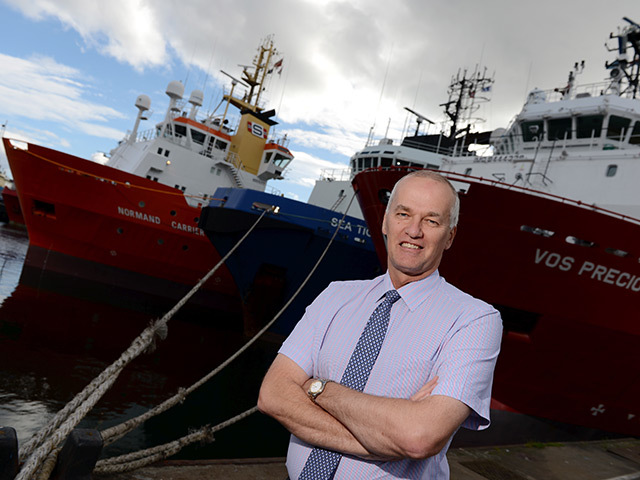
An expansion of Aberdeen harbour into Nigg Bay will allow it to avoid the kind of access problems plaguing other ports around the UK, according to chief executive Colin Parker
Mr Parker said severe traffic congestion in the Granite City – particularly on Market Street – was not currently hurting business at the harbour, where activity levels remain buoyant.
But Aberdeen Harbour Board’s plans to invest more than £300million in extending facilities into nearby Nigg Bay and keep up with competition across Europe would provide quick and easy access away from the traffic-clogged city centre, he added.
The port is said to be worth more than £420million a year to the local economy and supports an estimated 11,000 jobs.
Its most recent results showed a continued increase in vessel tonnage during the first half of 2013, while turnover was up by 5.6% on a year earlier to £13.8million.
However, the record levels of activity mean the harbour is operating at close to capacity.
The Nigg Bay expansion plans are aimed at meeting future demand for vessel berths from the oil and gas sector and attracting bigger cruise ships to the north-east.
Bosses have started preparatory work for the development, which they estimate could create more than 10,000 jobs.
Mr Parker said: “One of the main issues around the whole Nigg Bay project is that it gives us an opportunity for expanding the harbour facilities to an area well removed from the city centre.
“It will give us good links through the Charleston junction to the AWPR (Western Peripheral Route) and the A90 to the south.”
He also highlighted the potential for better links between the harbour and local rail infrastructure.
Mr Parker added: “Surface access is a challenge for many ports throughout the UK.
“Anything that can be done to improve it in Aberdeen in the future can only be welcome.”
He was speaking after a House of Commons transport committee report said local road bottlenecks were hindering access to Britain’s ports.
The report urged the UK Government to “contribute to significant improvements to strategic networks” rather than expect harbour operators to pick up the bill.
Committee chair Louise Ellman said: “Transport links – especially roads and rail – are crucial to the economic prosperity of our major ports.
“But significant changes made to the role of local government in strategic transport planning since 2010 have made it harder for UK ports to ensure that projects of strategic importance enjoy the kind of priority they deserve.”
Recommended for you
